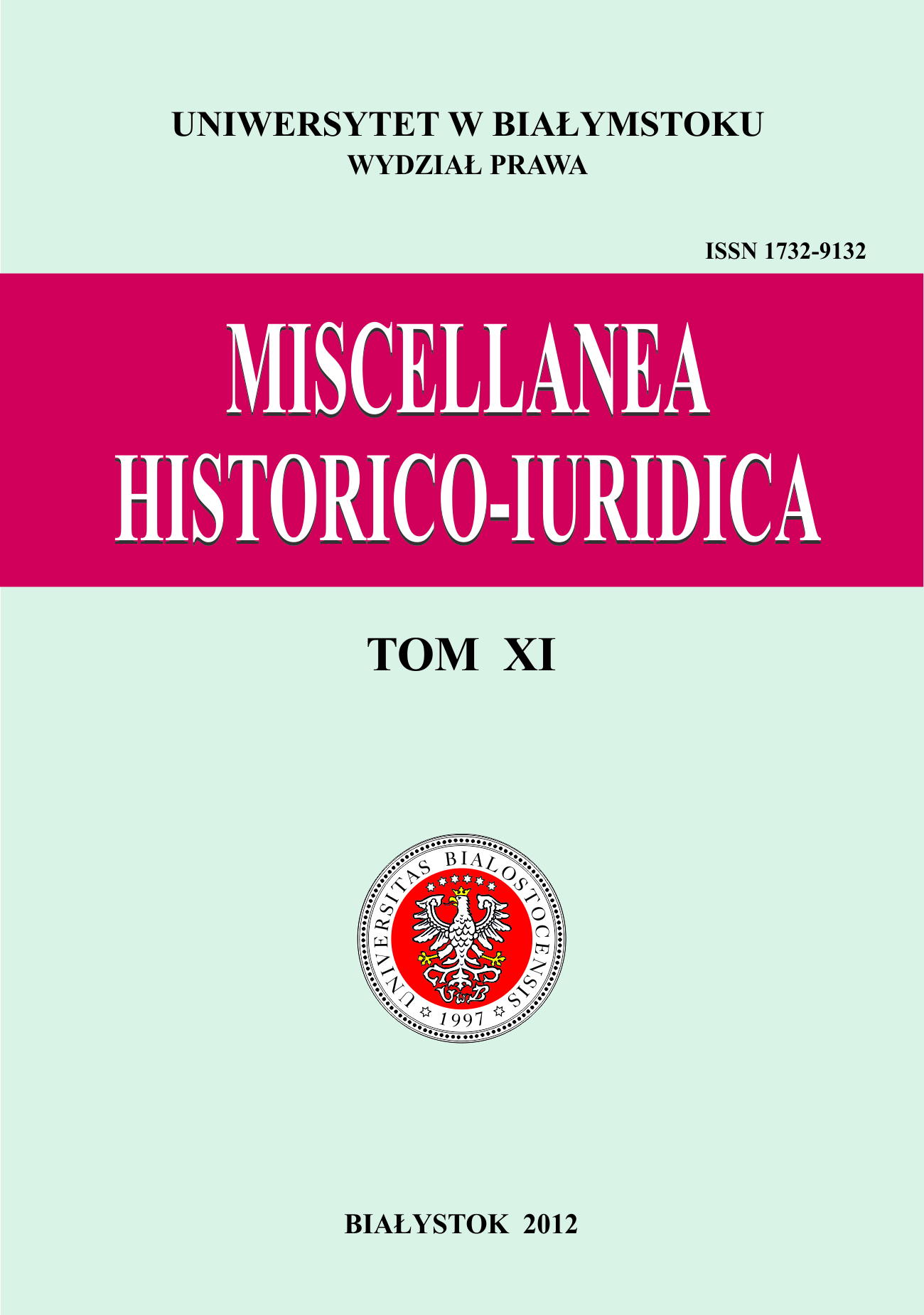Deductio in domum mariti and the conclusion of an iustum matrimonium
Keywords:
Mariage, Roman family law, Roman mariage rites, weddingAbstract
According to the communis opinio the classical Roman law did not know any formal procedure of concluding a marriage, since its conclusion required only the mutual consent of a man and a woman (affectio maritalis, consensus). Nonetheless, the Roman culture developed a number of ritual acts related to the conclusion of a marriage, most of them deeply rooted in Roman tradition and history and being of a great symbolic significance. The central moment of a wedding ceremony seems to be deductio in domum mariti i.e. a ritual introduction of the bride into her future husband’s household. The significance of such a ritual is reflected in the field of language, since the expression uxorem ducere (to lead a wife) is the most common expression used as a synonym of “to marry” and also in the field of law since, according to some jurists, when deductio in domum mariti had been accomplished, the couple was considered duly and legally married. The main function of the deductio was thus to give proof that the wedding had taken place and to manifest mutual affectio maritalis. Deductio in domum mariti played a special role in the case of the conclusion of a marriage inter absentes (although it seems that the only person permitted to be absent could be the groom and not the bride). In this case, the formal ceremony of deductio seems to be an indispensable act constituting the only way in which a mutual affectio maritalis could be expressed. Since the bride’s procession to her new husband’s house was considered to be the public declaration of a consensus necessary for concluding a legal marriage, in the case of a “groomless” wedding such a ceremony was necessary as a proof that mutual affectio maritalis had been expressed and thus a marriage had taken place. Nonetheless, the necessity of leading the bride to her husband’s home in the case of a matrimonium inter absentes could not be misunderstood with the constitutive character of deductio in domum mariti. A consensus still remained the only constitutive element and deductio in domum mariti constituted only the formal way in which, due to the particular circumstances, this consensus had to be expressed.







